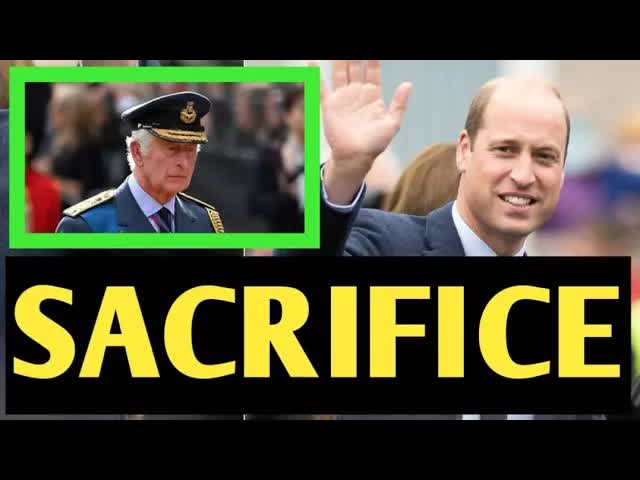In a surprising twist in the royal narrative, Prince William, the Duke of Cambridge, has reportedly made significant personal sacrifices to support his father, King Charles III, and uphold the integrity of the British monarchy.
This decision comes at a time when the royal family is grappling with unprecedented challenges, particularly the ongoing repercussions of Prince Harry and Meghan Markle’s departure from royal duties.
Sources close to the royals indicate that William has chosen to set aside his longstanding differences with his younger brother, Harry, in an effort to present a united front.
This move is particularly noteworthy given the backdrop of instability that the monarchy currently faces.
Royal commentator Ingrid Seward highlights the critical juncture at which the institution stands, emphasizing that the recent loss of Queen Elizabeth II and the transition to Charles’s reign have left the monarchy vulnerable.
The tension between the two brothers has been well-documented, primarily stemming from Harry’s decision to step back from royal responsibilities and his subsequent candid interviews.
William, who has always been protective of the royal legacy, has found it challenging to reconcile his brother’s choices with his own sense of duty.
Yet, in a remarkable shift, he appears to be prioritizing the monarchy’s stability over personal grievances.
This newfound approach has been evident in several public appearances, including a notable display of unity on Harry’s 40th birthday.
Royal expert Richard Fitzwilliams notes that by putting aside their differences, even momentarily, William is sending a strong message about the importance of family cohesion and duty to the crown.
It’s a gesture that resonates deeply within the context of their fractured relationship.
William’s willingness to make such sacrifices is not without emotional toll.
Reports suggest that he is profoundly affected by Harry’s actions, yet he recognizes the paramount importance of ensuring the monarchy’s survival.
His commitment to the institution seems to outweigh personal feelings, demonstrating a sense of responsibility that defines his future role as king.
The fragility of the monarchy is not lost on William.
As Seward points out, he understands that any further division within the royal family could lead to disastrous consequences.
This awareness fuels his determination to foster unity, even if it means setting aside his own hurt for the greater good.
As the public and media scrutinize his every move, William’s actions will undoubtedly influence perceptions of the monarchy’s resilience.
He seems prepared to navigate this turbulent landscape with a focus on preserving the institution he is destined to lead.
